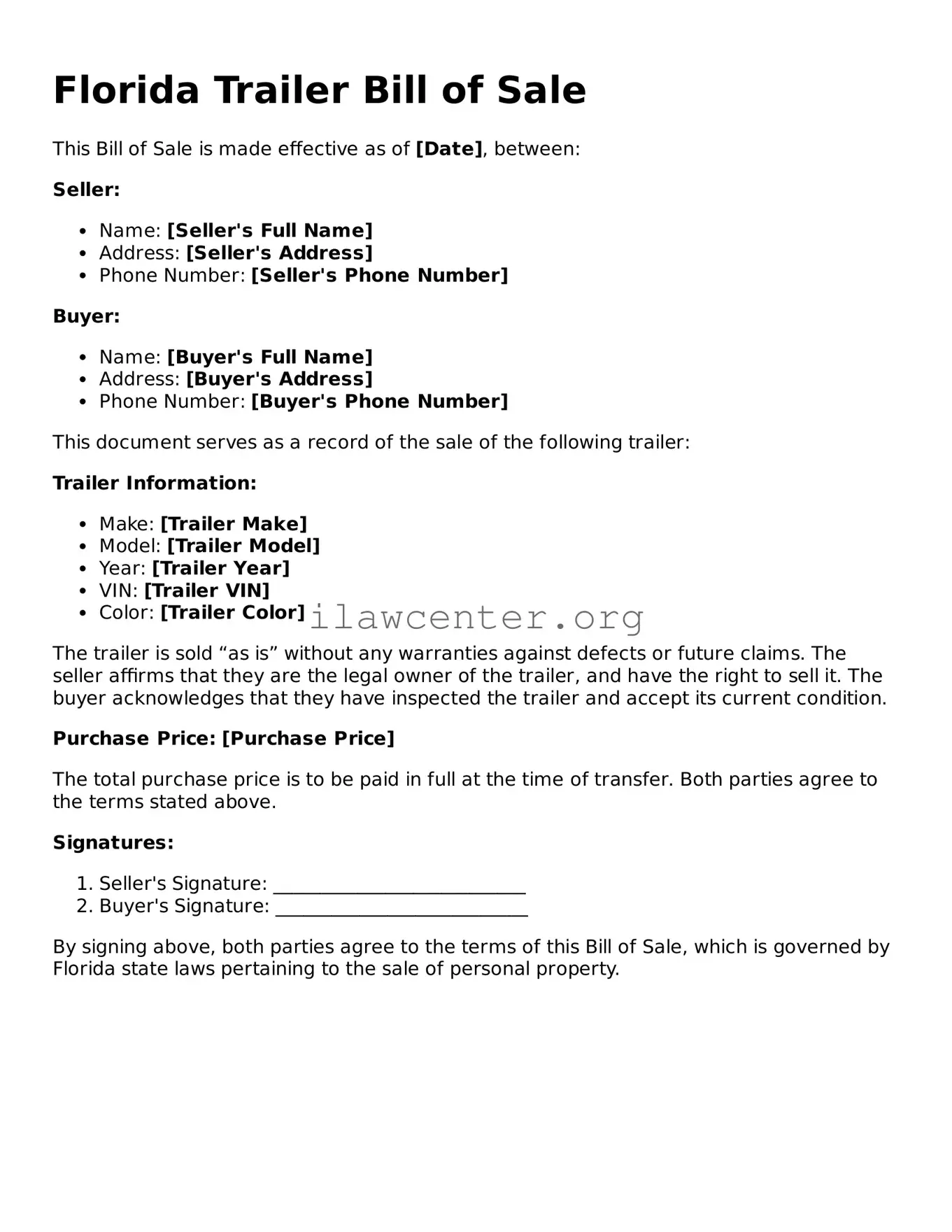Instructions on Utilizing Florida Trailer Bill of Sale
After obtaining the Florida Trailer Bill of Sale form, it is important to complete it accurately to facilitate the transfer of ownership. Once filled out, both the buyer and seller should keep a copy for their records. Having this document can help protect both parties' interests should any disputes arise later.
- Download and Print the Form: Start by downloading the Florida Trailer Bill of Sale form from a reliable source. Print it out to have a physical copy.
- Timestamp the Sale: At the top of the form, write the date when the sale is occurring.
- Seller Information: Fill in the seller's name, address, phone number, and email address in the designated fields.
- Buyer Information: Similarly, input the buyer's name, address, phone number, and email address next to the appropriate section.
- Trailer Details: Provide comprehensive information about the trailer being sold. Include the make, model, year, Vehicle Identification Number (VIN), and any other relevant details.
- Purchase Price: Clearly state the sale price of the trailer in the designated space.
- Payment Method: Indicate the method of payment, whether it’s cash, check, or electronic transfer.
- Signatures: Both the seller and buyer should sign the form at the bottom. This step is crucial as it signifies agreement to the terms of the sale.
- Witness (optional): If desired, have a witness sign the document to add an extra layer of validation.
- Make Copies: After both parties have signed, make copies of the completed form for their records.
